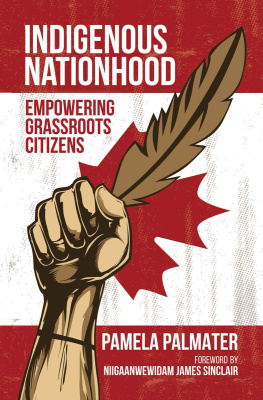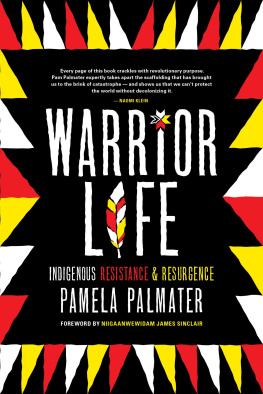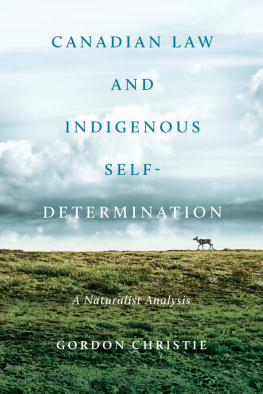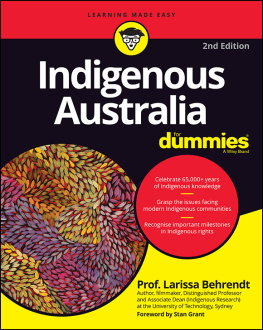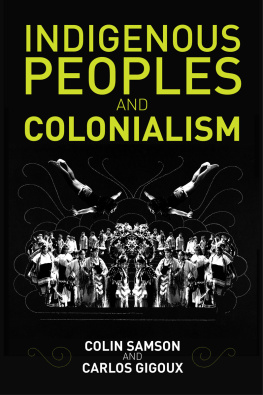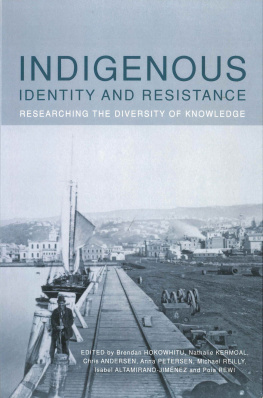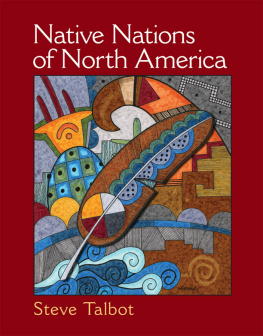Introduction
Standing with Pride, Rebuilding Our Nations
The many sovereign Indigenous Nations of Turtle Island have lived here since time immemorial in complex relationships with each other and the lands, waters, plants, and animals within their territories. For tens of thousands of years, Indigenous Nations governed themselves and their territories with sophisticated governments, justice systems, and militaries using the same trusted laws, practices, and protocols passed down from our ancestors. We maintained prosperous, responsible economies which provided for everyone in our nations, through activities like hunting, gathering, manufacturing, agriculture, and trade. While our elders passed on our languages, cultures, traditions, and ceremonies to successive generations, so too did they share their advanced knowledge of mathematics, sciences, medicine, history, philosophy, and astronomy.
Men and women both had important roles, which varied from Nation to Nation. While some nations were led by men, many of those leaders were appointed, counselled, and removed by women. Women were always valued as the life-givers of their Nations, but could also be hunters, warriors, political strategists, and/or negotiators as needed. Though Indigenous Nations may have organized themselves differently according to traditional rules contained within certain clans, houses, or districts, ultimately, they were always governed by a commitment to the collective the Nation. Political life included vibrant debate, extended discussions, the inclusion of all voices, and a commitment to understanding and consensus. In some nations, this could mean weeks or months of discussing issues until a consensus or broad understanding was reached.
Getting to consensus was a process which took a great deal of time, patience, listening, and understanding multiple perspectives by hearing from all voices who wanted to be heard. The very strength of our nations rested in part on the diverse views, opinions, insights, analyses, and guidance of our citizens. Consensus-making was an integral part of our governance systems, which showed a balanced respect for the sovereignty of both the collective and the individual. While there are many important aspects of our traditional governance systems, the commitment to consensus building not just the final decision itself is what stands out as one of the keys to restoring balance today.
The settlers and their governments disrupted our balance. They had two overall objectives: (1) to acquire Indigenous lands and resources; and (2) to reduce any financial obligations to Indigenous peoples that they acquired through treaties and other agreements. Their two primary methods of doing this were to eliminate and to assimilate Indians. Elimination policies included scalping bounties; small pox blankets; forced sterilizations of Indigenous women and girls; torture, neglect, experimentation and murder of Indigenous children in residential schools; trapping us on reserves; and providing minimal rations for our survival.
Assimilation policies included the destruction of language and culture in residential schools; taking Indigenous children away from our families and communities; the theft of our lands and resources; and the imposition of Indian Act governance on our nations. The latter has had a significant impact on the ability of Indigenous citizens to exercise our voices and be part of decision-making processes. The Idle No More movement was a historic coming together of our peoples all over Turtle Island to exercise our voices in unity against ongoing injustice and oppression by colonial governments.
We were standing up against the many Canadian laws and policies that continue to have a profound multi-generational impact on our nations. While todays Canada may be described by its settlers and other non-Indigenous people as a post-colonial state, it is not post-colonial for Indigenous peoples. What used to be residential schools became the sixties scoop, which has become the current crisis of 30,00040,000 Indigenous children in care. What used to be scalping laws are now starlight tours, deaths in police custody, murders of peaceful land defenders, and thousands of murdered and missing Indigenous women and girls. What used to be laws against Indigenous peoples gathering, leaving their reserves, or hiring lawyers to make claims are now extensive surveillance of our people by RCMP , DND (Department of National Defence), and CSIS (Canadian Security and Intelligence Service), the over-incarceration of our men, women and children at alarming rates, and funding cuts to our advocacy organizations. The colonial experience has never ended for us.
One of the most devastating impacts to our nations has been the impact on our traditional governance structures. Successive ministers of Indian Affairs, under the authority of the Indian Act, imposed multiple election-based systems in many communities within our larger Nations not only dividing us geographically but politically as well. Our large powerful Nations were divided into smaller communities, often relocated at great distances from one another and on less valuable land. Our long-held governance practices of consensus-building and direct accountability to the people were exchanged for government-controlled bureaucracies that were forced to account only to the minister of Indian Affairs. The minister became the ultimate decision-maker and arbiter of all issues and used its funding and intervention powers to control political outcomes in our communities. Paternalistic government control over our communities has resulted in many political, legal, and social divisions, which have created a significant barrier to healing and rebuilding.
The colonizer in the current political context is the Crown i.e., the federal and provincial governments in what is now known as Canada. Colonization, in its simplest definition, is when a state or colony attempts to dispossess and subjugate the original Indigenous peoples of those lands. It results in the very trauma that has been widely experienced by Indigenous peoples all over the world, including Canada, the United States, Australia, New Zealand, Hawaii, and other colonies. The individual healing and nation-rebuilding process requires that we kick the voices of the colonizers out of our heads. That is not easy to do since colonization is, in part, the long-term use of torturous methods to brainwash successive generations of Indigenous peoples until we believe we are pagans, heathens, savages, criminals, terrorists, and generally less worthy than others.

